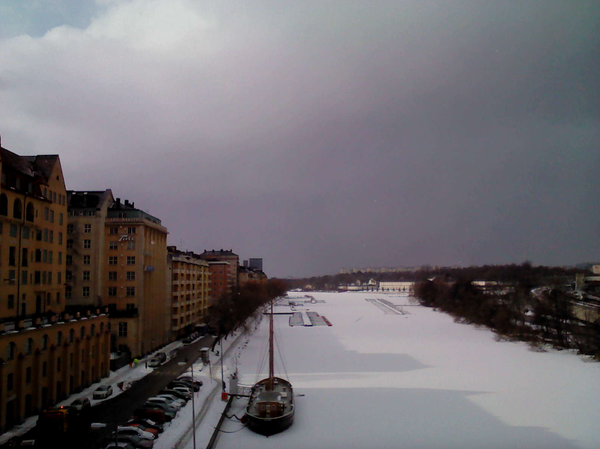Recent developments in Europe show how easily crisis becomes routine. For months, we had been hearing about dire energy shortages that might worsen as demand spiked with the onset of the cold months. But a fairly mild autumn (that in itself might have been a warning sign, as it turns out) instilled a sense of complacency. How can there be a looming crisis, when every day seems more or less like the last?
It took some snowstorms in November and a brutal cold snap in December for reality to prevail once more. Not only was winter a reality rather than a distant possibility, the energy storage situation, which had receded to the background for a few months, became an evident problem again.
Here in Sweden, ruinous power and utility bills are slated to hit citizens’ mailboxes after Christmas, with projections running as high as nearly $2,000 for the average single-family dwelling. The government elected earlier this year was seen by some as a break from the past, because it included the populist right. But it has already been mired in several failed attempts at delivering some kind of ad hoc solution.
A promise to lower the price of gas at the pump by as much as a dollar per liter ended up translating to a real reduction of a few measly cents. A promise to outright shield consumers and small businesses from the effects of rising energy prices collapsed, only to be replaced with vague promises of reimbursements at some point in 2023. Add rising interest rates and inflation, and it’s becoming hard to see how the coalition can survive a full term.
In Britain, a similar situation reigns. During the recent cold snap, the country burned through a fifth of its gas storage in a single week. As January and February are usually a good deal colder, rolling blackouts may well materialize quite soon; UK authorities, and their counterparts in Denmark, Finland, and Sweden, have warned that regular power outages might just become a fact of life in the near future. The political price for all of this is likely to be steep, but the real issue is that the problem of European energy is now chronic rather than acute.
Despite an initial period in which the problem was recognized and taken somewhat seriously, populations soon lost interest, as the media found other, fresher news to cover. Of course, the problem never went away; the time bomb was still counting down to detonation. Then, finally, as the consequences of the bomb exploding became immediate, attention returned, but by then it was too late to do anything other than brace for the impact.
The same process can be seen with other slow-rolling crises. Take dysfunction inside the US military. People notice the collapse in recruitment and retention, and there is much consternation and debate about what to do about it—but little in terms of concrete remedies. Then, the news cycle moves on, the problem gets buried, and like an untreated cancer, it is left to spread silently.
On issues that run the gamut from the national-security implications of outsourcing almost all antibiotic production to China, to the lack of industrial capacity to make new ships for the Navy or artillery shells for the Army, to the collapse in retention for all branches of the military, what we tend to see is a short-lived burst of attention, followed by a long period of apathy, punctuated occasionally by renewed interest that never leads to any meaningful interventions.
“We live at a time that is both precarious and, ironically, boring.”
This is, it should be noted, nothing new. In the lead-up to the 1789 Revolution, France battled spiraling economic and domestic crises for more than a decade, following the same pattern: now paying attention, now attempting and failing to reform, now resigning itself to inertia. Only when the crisis truly arrived and couldn’t be postponed was an effort made to address the root causes; it was far too late.
It has become popular among segments of the right to make statements about “what time it is.” Well, what time is it? The answer is difficult to determine, because we live at a time that is both precarious and, ironically, boring and uneventful—the period of time between the failure of reform, and the final outbreak of a crisis that can’t be ignored. What eventually pushes us over the edge, and when, remains to be seen.
